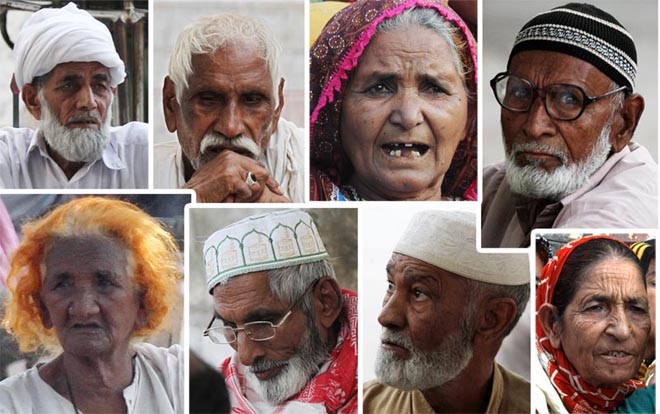
The existence of old people’s home in a modern society is in essence utilitarian and linked with the value of gender equality

No doubt, we owe much to our parents; this is the message of Global Day of Parents observed every 1st of June. Similarly, every year, May 15 is observed as the International Day of Families. An occasion to celebrate the vitality of family to achieve development goals, the day seeks to ensure gender equality and fulfill children rights within family.
"Gender equality" and "children rights within families" are characteristics of nuclear family -- comprising husband, wife and their children -- than extended one, which consists of the two spouses, their children and the family members of the male spouse particularly his parents. Where economic modernisation accompanies female mobility beyond the confines of her home, the emerging trend is a transition from extended to nuclear family.
Admitting old-age parents to old-age houses is a logical consequence though unwelcome in a comparatively conservative society. For an acquaintance of mine, it was heartbreaking that Quetta had its first old people’s home. His comment, "what a pretty pass things have come to while following blindly into the footsteps of angrez (English) at the cost of our values" is representative of a thought prevalent among the majority of people in Pakistan. Do our values change just because we blindly follow the West?
For sure, less advanced civilisation emulates its advanced counterpart in various ways including the adoption of values. In the course of human history, myriad civilisations from ancient Greeks to Romans to Muslims to the West have all borrowed values from one another. Since, currently, the West -- industrialised and more democratic part of the world -- is at the zenith of advancement in terms of science and technology, and arts and literature, the borrowing of certain values on the part of the rest of the world is quite understandable.
Our imitation of certain values from the West is more as a pre-requisite to modernity than the blind following of the West. The emergence of old people’s home is more a requirement of modernity than a mere emulation of western customs. Though we may dispute what modernity entails, there is no denying the fact that it is closely associated with the rising entry of women into job market.
Also read: A portrait of old age
In traditional family settings, a husband is the breadwinner, his wife a housewife who not only looks after their children but also caters to the needs of her husband and his parents. Thus, the emergence of the phenomenon of old people’s home is in response to the vacuum left by the traditional catering by the woman in the house.
The existence of old people’s home in a modern society is in essence utilitarian. In the absence of a traditional housewife, an older person is supposed to be properly taken care of in the old people’s home than back home. The reason that majority of us may take offence to the idea of admitting old parents into these houses is not because we are not economically modern enough but because we value extended family more.
People hold the institute of extended family in high regard because we have imbibed the traditions of the institution. With the passage of time, new developments gain currency. A pertinent example would be female education. Our old generations had a lukewarm attitude towards educating the female for a mixed bag of reasons firmly rooted in socio-religious and cultural reasons. Now the opposite has been taking place for some time except for the almost negligible, extremely conservative, fringe.
Similarly, children raised in nuclear family will not be averse to the idea of old people’s home. This way, the act of some becomes the way of the majority.
Those who take umbrage against the idea of old age home here in Pakistan are not alone to resist change. In fact, every society has its division along conservative and liberal lines. There are those who value the past and there are those who side with the change. In the case of preserving the institute of extended family, there is a tradeoff between preserving it and enshrining gender equality in terms of equal opportunities for male and female. Conserving extended family comes at a cost of gender equality and vice versa.
United Nations International Day for Families demands of us not to imprison the untapped talent of our women. At least, a woman should have the choice to decide herself as to whether she is content with doing her domestic chores or wants to have a career beyond the boundary of her home. The state has a responsibility to protect her rights against the whimsical appetites of male. For those who oppose irresistible changes, Heraclitus’s "there is nothing permanent except change" is instructive.